Black Panthers: The Musical
"Party People" examines the complexity and struggle of the Black Panthers and Young Lords.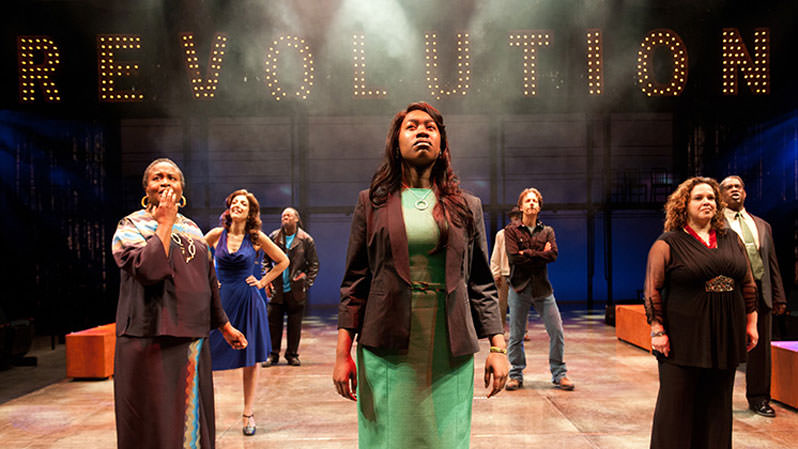 Oregon Shakespeare Festival/UNIVERSES
Oregon Shakespeare Festival/UNIVERSES
Oregon Shakespeare Festival/UNIVERSES
Decades ago, Lincoln Hospital in the South Bronx was so neglected that rats ran through the emergency room and the head of pediatrics claimed children got lead poisoning while hospitalized there. Steven Sapp’s grandmother lived near the hospital, and he remembers when the Young Lords, a Puerto Rican group similar to the Black Panthers, barricaded the doors in 1970 and took it over with the help of nurses and doctors who worked there. He also remembers going by the Black Panthers’ office in the neighborhood, where black nationalists organized clothing drives and free breakfasts.
So when the Oregon Shakespeare Festival approached Sapp and the other members of the New York-based ensemble Universes, asking them to be a part of the festival’s “American Revolutions: The United States History Cycle,” they chose to write about the Black Panthers and the Young Lords.
The musical they wrote and starred in, “Party People,” premiered in Ashland, Ore., in 2012. Now it’s playing through Nov. 30 in the birthplace of the Panthers, the Bay Area, at the Berkeley Repertory Theatre. “Party People” imagines an art show put on by a son of a Panther and a nephew of a Lord that brings the two groups together. Sapp says the writers didn’t want to do a period piece and got the idea after seeing footage of a reunion of the Young Lords.
“They were introducing them, and they came out one by one, and some smiled and some didn’t, and we thought, ‘I wonder what’s going on back there,’ ” Sapp said. “We started doing our research and looking at the dynamics of people’s relationships, and when we started to meet the kids, they were giving us this whole other perspective about feeling abandoned and how some felt they didn’t have a voice.”
To create the show, Sapp and other members of Universes spent three years traveling around the country, interviewing dozens of people who’d been involved with the Panthers and the Lords.
One of the people they interviewed was Bobby Seale, who co-founded the Black Panther Party with Huey Newton. Seale, a onetime performer himself, has acted, been a jazz drummer and done stand-up comedy. He saw “Party People” when it premiered at the Oregon Shakespeare Festival, and he thought it captured the spirit of the time.
“I loved it,” Seale said. “It keeps you excited. I was sitting in the audience of 300-something people watching this play, and it was something else. Artistically, it was great.”
The Panthers were known for monitoring the police and asserting their right to self-defense, but Seale appreciated the play’s attention to the social programs the Panthers and the Lords started, such as free breakfasts for children and health clinics. That’s what really caught the public’s attention, he said.
“This is the threat — it isn’t about the guns, it’s about us uniting the people in what we called the racist pig power structure,” Seale said, referring to the negative attention the Panthers got from then-President Richard Nixon as well as FBI director J. Edgar Hoover, who called the party “the greatest threat to the internal security of the country.” According to Seale, “We were serving the people in the community.”
Hoover supervised a surveillance and infiltration program, COINTELPRO, designed to undermine the party. Many people told the thespians stories about the program, Sapp said. During interviews, he added, they didn’t take papers, pens or recorders — they just listened.
“We found out a lot we didn’t know — things that were very touching, extremely scary and complicated,” Sapp said. “But everyone we talked with had incredible depths of love for the community. What they did was a huge undertaking. It was like they were in a war that no one acknowledges. They really felt they were going to change the world, and they watched friends die or went to jail or found out people they thought were friends were agents.”
The theater troupe heard so many amazing stories it was hard to choose when the members were writing the play, said Liesl Tommy, the associate director of Berkeley Rep and the director of “Party People.” Having grown up in South Africa, Tommy said she has heard a lot about what people give up when fighting for a cause.
“It means you sacrifice your youth and maybe end up in jail. You might send your children away so they can be safe or give up your own dreams,” Tommy said. “So that’s education, relationships and personal ambition. We heard a lot of stories about family relationships that were very difficult to repair.”
The interviewees kept asking them for the same thing in the play, Sapp and Tommy said — tell the truth.
“We took it to mean don’t sugarcoat it, don’t shy away from complexities,” Tommy said. “There was a lot of internal fighting and factionalism and differing ideas of political agendas, almost all stemming from the incredibly high levels of infiltration. The risk of covering the depths of infiltration is to expose the mistakes they made, but in telling the whole story we illuminated what the sacrifice was for them. Not everybody comes off looking great, but they all come off looking like they care about humanity. The passion they have for the welfare of their fellow man is truly inspiring.”
Sapp said he’s been surprised to see audience members sobbing and he’s witnessed some touching moments too, such as Fred Hampton Jr., the son of a Panther killed by the Chicago police, meeting his father’s attorney for the first time.
“He said to him, ‘I remember you in your mother’s belly,’ and Fred’s whole face just melted,” Sapp said. “They were having a conversation they’d never had in the theater, and it was so moving. They’re bonded forever because of this play.”
“Party People” deals with things such as what younger and older activists can teach one another, Sapp said. The problems these groups were fighting against in the ’60s and ’70s have clearly not disappeared, he argued, mentioning, as an example, the police shooting of Michael Brown, an unarmed African-American teenager, in Ferguson, Mo.
“I think it’s an important story to hear — it speaks to the now,” Sapp said about the play. “It really was a class struggle and it continues to be a class struggle. The term ‘All power to all the people’ sounds cliché, but it really is all power to all the people.”
Your support matters…Independent journalism is under threat and overshadowed by heavily funded mainstream media.
You can help level the playing field. Become a member.
Your tax-deductible contribution keeps us digging beneath the headlines to give you thought-provoking, investigative reporting and analysis that unearths what's really happening- without compromise.
Give today to support our courageous, independent journalists.
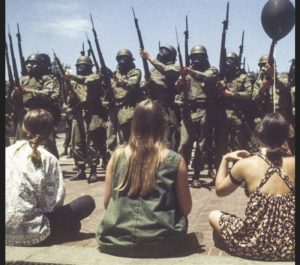
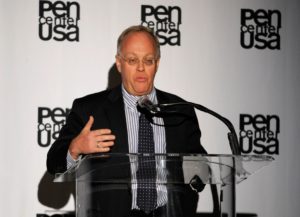

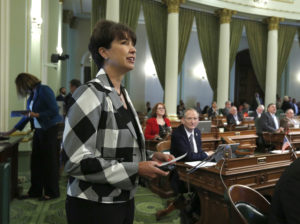
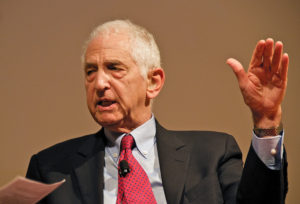
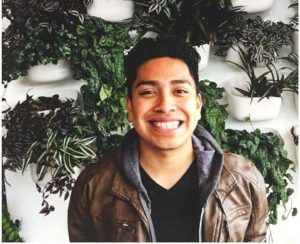
You need to be a supporter to comment.
There are currently no responses to this article.
Be the first to respond.